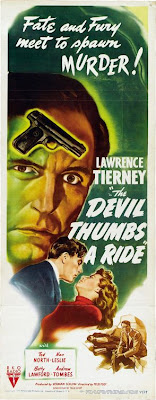
We all do it when someone dies. We talk nicely about them, we ignore or excuse their faults. In many cases, we rewrite history to make the person look better, which is another way of saying that we lie about them to simplify our own feelings. We create a plaster saint to which we can then pay homage and move on.
But the truth lingers, doesn't it? And the truth is that other people are a mystery. All that's really left when someone dies is the mystery. Alexander Payne's new film THE DESCENDANTS (based on the novel by Kaui Hart Hemmings, with a screenplay by Payne, Nat Faxon, and Jim Rash) knows this brutal reality very well. This is a film about grieving. How do we confront the passing of someone we love but with whom we have unresolved issues? This, of course, is only more true the more you love someone. They pass on, but the issues remain.
In the film, George Clooney plays Matt King, a lawyer in Hawaii whose wife Elizabeth is lying in a coma dying after a boating accident. King has two daughters, a precocious 10-year old named Scottie and a surly teenaged daughter named Alexandra. The girls are dealing with their mother's accident in different ways. Scottie is morbidly obsessed with the idea of death and creates a photo album of her mother hooked to a ventilator while Alexandra is furious and getting drunk with a goofball boy named Sid.
Even before the accident, King had a lot to worry about. He and his wife were on the skids and he was thinking that maybe they should "have a talk." He's also managing the eminent sale of a large chunk of his family's land holdings in Hawaii, a sale worth hundreds of millions of dollars. That's all before Alexandra drops the bombshell that her mother was having an affair with a local real estate agent.
Alexander Payne is the logical director for this kind of material, and this film seems of a piece with his Jack Nicholson film ABOUT SCHMIDT. Both films are about men who lose their wives and then regain some sense of themselves in the process of grieving. (What this says about Payne's opinion of marriage is anyone's guess.) This is not to say that what Clooney is doing here is playing the same character. Poor Schmidt was a man who bought into a certain life only to find himself spat out on the other end of it with nothing to show. ABOUT SCHMIDT has a tender ending, but it's a tragedy, THE DEATH OF A SALESMAN with a comic streak.
THE DESCENDANTS, on the other hand, is a story about reconnection. Matt King has enough time to find a place for himself in the lives of his daughters. He is able to make Alexandra an ally in this process, and this film, more than anything else, is really about how father and daughter get to know each other.
The movie has its flaws (the land sale subplot never rises above the level of metaphor), but the film contains some scenes of startling emotional clarity, especially when the family gathers around Elizabeth. These are not the usual scenes of plaster saint homage. These are scenes of anger and frustration. The troubled marriage of the Kings, and its impact on their daughters, did not end when Elizabeth was injured, nor does it end as she lays dying.
This is an interesting role for George Clooney, not the first actor one would think of for this material. Of course, he long ago demonstrated that he was able and willing to complicate his leading man image either by playing against type (O BROTHER WHERE ART THOU?, THE AMERICAN) or by playing to type but revealing hidden weaknesses in the character (UP IN THE AIR, THE IDES OF MARCH). Still, this may well be his least heroic turn. Clooney is excellent at playing men in charge, men in the know. Here he is convincing as, of all things, a normal man thrown off course by life.
The rest of the cast is uniformly good, but especially Shailene Woodley as Alexandra. The film is largely a duet between Woodley and Clooney, daughter and father circling each other warily as they attempt to navigate the new terrain of their lives. It is up to these two actors to create the emotional core of the family, to create the space left by the absent wife and mother, to fill it with anger and recrimination. And, maybe, redemption.
PS:
On a side note here: Clooney may well win some awards for this role. Good for him. It's a fine performance. But sometimes movie stars have to play against what makes them great before some people are willing to give them awards. This is a bullshit process that once again reveals how utterly meaningless awards are. Such has always been the case (Bogart winning for THE AFRICAN QUEEN for "proving" he could act--as if a trained chimp could have starred in CASABLANCA). The most obvious recent example is Denzel Washington winning an Oscar for playing a bad guy in TRAINING DAY when MALCOLM X and CRIMSON TIDE had already proved Washington was a great actor and screen presence. If Clooney wins awards for THE DESCENDANTS it will "prove" nothing. His work in OUT OF SIGHT and THREE KINGS wasn't simply the result of sprinkling movie star dust on a handsome face, it was great acting.



